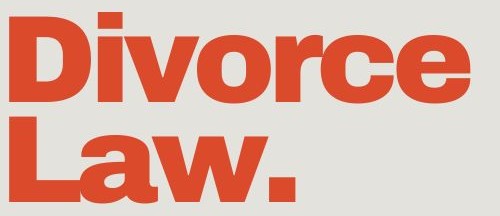In New York, full financial disclosures are key in divorce. They are not just formal steps. They are crucial for both sides to understand each other’s money situation. This is important for fair sharing of assets during the legal process.
According to New York’s rules, people must share detailed financial info. This includes a sworn statement of net worth and all assets and income details. Meeting these legal steps can make the divorce smoother and affect the final results. It also helps avoid issues like being unable to show you can pay support.
Being open about your finances helps in fair talks and builds trust. If you want to learn more about financial disclosures in prenups, check out this resource. It offers deep insights into the importance of financial disclosure in divorce.
Understanding Full Financial Disclosures in New York
In New York, knowing about full financial disclosures is key when getting a divorce. It means sharing all financial details, like what you own, how much you make, and what you owe. This is important for a fair divorce outcome.
Definition of Full Financial Disclosure
Full financial disclosure means both spouses must share all their financial information. In New York, this includes a detailed new york divorce financial affidavit. This ensures honesty and prevents fraud.
Importance in Divorce Proceedings
Knowing the value of these disclosures is crucial. They help decide how to split assets, who pays for what, and child support. Without true financial information, reaching a fair agreement is hard.
When couples mediate, full financial disclosure helps them talk better and settle faster. In New York, assets are divided fairly. Accurate information helps ensure this fairness.
For more on settlement agreements, check out setting up a marital settlement agreement. Knowing these details makes the divorce process smoother and fairer for everyone.
Legal Obligations for Financial Disclosure
Knowing the legal rules about financial disclosures in NY divorce cases is key. New York State requires both spouses to share their financial details. This ensures fairness and transparency in the divorce process.
They must submit certain documents and answer questions on time.
New York State Guidelines
New York has clear rules for financial disclosures in divorce cases. Spouses need to share details about their income, assets, debts, and expenses. They must also complete a sworn statement of net worth within 20 days or 10 days after the issue is joined.
These rules apply to all divorces started since 1975. They help in fair negotiations and settlements.
Consequences of Non-Disclosure
Not following these rules can have serious consequences. The court might order the non-compliant party to pay the other’s legal fees or dismiss claims. Hiding financial information can hurt your credibility and the divorce outcome.
Following financial disclosure rules is crucial for the divorce process’s integrity.
| Potential Consequences | Description |
|---|---|
| Sanctions | Imposition of financial penalties or attorney’s fees for non-compliance. |
| Loss of Claims | Dismissing claims or defenses related to financial matters. |
| Legal Penalties | Legal repercussions including contempt of court actions. |
| Damage to Credibility | Loss of reputation and credibility in court proceedings. |
What Constitutes Full Financial Disclosures?
Knowing what full financial disclosures mean is key in divorce. It includes many documents that show each person’s financial situation. In New York, these disclosures help both sides know each other’s money matters, making negotiations fair.
Types of Financial Documents Required
Here’s a list of important documents needed for a financial disclosure statement in divorce:
- Federal and state tax returns for the past three years
- Bank statements from all accounts for the past year
- Investment account statements
- Retirement account statements
- Pay stubs or records of income for the past few months
- Statements of monthly expenses
- Documentation of any additional income sources
- Attorney retainer statements
These documents help understand each person’s financial health and debts. They show income, spending, and financial stability.
Assets and Liabilities to Disclose
In divorce, it’s important to share both assets and liabilities. I must make sure all details are shared. Key assets include:
- Real estate properties
- Vehicles
- Personal property, such as jewelry and valuable collectibles
Liabilities to disclose include:
- Credit card debts
- Loans and mortgages
- Outstanding obligations associated with any shared business ventures
Being open about all financial matters is crucial to avoid legal trouble. New York law requires this, and not following can lead to serious penalties. Getting help from financial advisors can make things clearer and easier.
The Process of Submitting Financial Disclosures
In New York, getting a divorce means following strict rules about financial disclosure. You must submit important documents on time. This is key to dividing assets fairly and ensuring a just outcome.
Timeline for Submission
When you file for divorce, you have to share financial information quickly. The court sets deadlines for this. This usually happens before any meetings to discuss the divorce.
These deadlines are usually 20 to 30 days after you serve the divorce papers. If you miss these, you might face penalties or delays in your case.
Filing Procedures and Forms
You need to fill out several forms and follow certain steps. The main ones are:
- Verified Complaint
- Verified Answer
- Financial Affidavit
- Disclosure of Assets and Liabilities
These forms detail your financial situation. They cover income, expenses, property, and debts. It’s crucial to fill them out accurately to avoid legal trouble and ensure a fair split of assets.
Common Challenges in Financial Disclosure
Handling financial disclosures in NY divorce cases can be tough. Two big problems often come up: arguing over what assets are worth and finding it hard to give accurate financial info. These issues can slow down the divorce and affect how assets are split fairly.
Disputes Over Asset Valuation
Arguments about what assets are worth can make things harder. People might have different ideas about the value of things like houses and investments. Getting these values right is key because it helps figure out who gets what and how much support is needed.
Getting experts to value assets can help solve these problems. This way, everyone follows divorce financial disclosures New York law better.
Difficulty in Providing Accurate Information
It’s also hard to give out all the financial details. Sometimes, people might not tell the whole truth about their money. They might not want to share all their income, assets, or debts.
It’s important to have all the right documents ready. This includes things like tax returns, bank statements, and info about retirement accounts. If you don’t give out all the financial info, you could face serious consequences.
Being open and honest is key during a divorce. Both sides should get all the documents they need and be ready for disagreements. Getting help from experts, like forensic accountants, can make things easier and help avoid mistakes.
How to Prepare for Financial Disclosure
Preparing for financial disclosure in New York law needs careful planning. Start by gathering all financial documents. This makes the process smoother and helps understand the divorce better.
Gathering Necessary Documentation
To meet financial disclosure needs, collect key documents. These include:
- Income statements (W-2s, pay stubs)
- Tax returns for the past five years
- Bank statements
- Investment account details
- Documentation for real estate and vehicles
- Retirement account information
- Any outstanding debts (mortgages, loans, credit cards)
Getting a free credit report is also important. It helps verify information and fix any errors.
Tips for Accurate Reporting
After collecting documents, make sure all numbers are correct. Here are some tips:
- Double-check each document for accuracy before submission.
- Keep a record of all financial communications and transactions.
- Get legal advice if unsure about any disclosures, especially with joint accounts.
- Be transparent, especially when filling out the Statement of Net Worth.
Completing the Statement of Net Worth accurately is crucial. It shows your financial situation clearly. This is important in both mediated and court cases. For more on divorce, check out the inside scoop on Kevin Costner’s.

The Role of Financial Advisors in Divorce
Divorce can be very tough on finances. Financial advisors play a key role by offering guidance. They help with dividing assets, understanding taxes, and planning for the future.
Benefits of Professional Guidance
Working with a financial advisor, especially one who knows divorce, has many benefits. They can:
- Make a detailed list of all assets and debts.
- Check the value of businesses and what each partner owns.
- Find separate property claims.
- Look at the tax effects of property settlements.
- Do cash flow analyses for support payments.
Professional advice goes beyond just the divorce. It helps build a strong financial base for the future. Advisors help negotiate and keep focus on financial goals that fit new realities.
Choosing the Right Financial Advisor
Finding the right financial advisor is key. Here are important things to consider:
- Experience with Divorce Proceedings: Choose advisors who specialize in divorce finance.
- Certified Divorce Financial Analyst (CDFA) Designation: A CDFA has special training in divorce finance.
- Collaborative Approach: Make sure your advisor works well with your lawyer.
- Proven Methodologies: Advisors should use tested methods for accurate analysis.
- Comprehensive Services: Check if the advisor offers help with budgeting and investments after divorce.
Considering these points will help you find the right advisor. They will be a big help during this tough time.
| Criteria | Importance |
|---|---|
| Experience with Divorce | Essential for navigating unique financial challenges |
| CDFA Certification | Indicates specialized knowledge in divorce finance |
| Collaborative Approach | Facilitates coordinated strategies between legal and financial realms |
| Proven Methodologies | Ensures rigorous analysis for informed decision-making |
| Comprehensive Services | Addresses broader financial concerns beyond immediate divorce issues |
Getting professional advice can make divorce easier. It sets you up for a better financial future. Choosing the right advisor is an investment in your long-term success.
What Happens If Full Disclosure Is Not Provided?
Not providing full financial disclosure during divorce can have big consequences. It can lead to serious legal issues and affect how assets are divided. This can make the divorce process unfair for both sides.
Legal Repercussions
If someone doesn’t follow financial disclosure rules, the court can take action. Judges can force the person to give up needed documents. If they still don’t comply, they could face contempt of court charges.
This can result in harsh penalties, like jail time. The court might also make one spouse pay more in child or spousal support. This is because the court sees the non-compliant person as not following the rules.
Impact on Settlement Negotiations
Not having clear financial information makes it hard to reach a settlement. It can lead to unfair splits of assets. Lawyers might need to hire experts to find hidden money or assets.
Without accurate financial details, negotiations can get very long and costly. Making big decisions without all the facts can lead to bad outcomes. This is because both sides don’t have a clear picture of their financial situation.

| Non-Disclosure Consequences | Description |
|---|---|
| Contempt of Court | Potential incarceration for refusal to comply with disclosure requirements. |
| Unfavorable Rulings | Court-ordered support obligations against the non-compliant spouse. |
| Freezing Assets | Judicial orders to freeze assets to prevent dissipation before division. |
| Forensic Investigations | Hiring experts to find hidden assets or financial irregularities. |
| Sanctions and Fees | Judges can issue various sanctions and award attorney fees for non-compliance. |
Modifications to Financial Disclosures
During a divorce, financial situations can change quickly. This might mean you need to update your financial disclosures. It’s important to know when and how to make these changes to keep everything clear and fair.
When Can Modifications Be Made?
Modifications are needed when big financial changes happen. These can include:
- Changes in income, such as a job loss or a big promotion.
- Buying or selling assets, like houses or investments.
- Finding mistakes in your financial documents.
- Changes in debt, like new loans or credit card balances.
Process for Updating Financial Information
Updating your financial information involves several steps. These steps help make sure everything is done right and legally:
- Identify the Need for Modifications: Check if any financial changes need to be reported.
- Document Changes: Collect new documents that show your current financial situation.
- Notify Relevant Parties: Tell your lawyer and the court about the changes.
- Submit Updated Documents: Send the new financial information to the court.
- Acknowledge Confirmation: Wait for the court to confirm they have your updated information.
| Step | Action Required |
|---|---|
| 1 | Identify the Need for Modifications |
| 2 | Document Changes |
| 3 | Notify Relevant Parties |
| 4 | Submit Updated Documents |
| 5 | Acknowledge Confirmation |
Keeping accurate financial records is key during a divorce. Making timely updates to your financial disclosures helps ensure a fair outcome. This avoids problems later on.
Conclusion: The Importance of Honesty in Financial Disclosures
Honesty is key in financial disclosures during divorce. It’s not just a legal must in New York; it’s crucial for trust. When both sides are open about their finances, they pave the way for a fair split. This openness helps avoid fights and keeps the focus on dividing assets fairly.
Building Trust During Divorce
Divorce can be tough, and trust is essential. Being honest about finances shows a commitment to fairness. This honesty can make the divorce process smoother. It also helps avoid long, costly fights.
Long-Term Implications for Financial Health
Being honest about finances now has big benefits later. It lets both sides make smart choices for their future. Not being open can lead to financial trouble after divorce. For more on handling financial disclosures, check out this resource. Honesty now means a better financial future.

